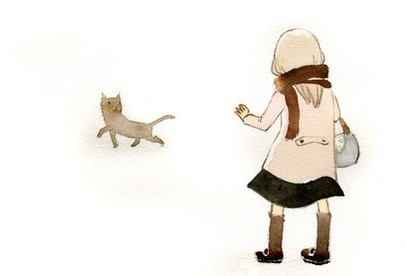Why are Chinese people so anxious? On April 8 the China Youth Daily published an article illustrating this problem. Here is an excerpt.
中國人為什么如此焦慮?《中國青年報(bào)》4月8日發(fā)表的一篇文章對這個(gè)問題進(jìn)行了分析。以下是文章的節(jié)選:
Ordinary Chinese people are anxious about education, jobs, personal relationships, houses, love and children's primary education, etc. Because of their anxiety, the words such as "Fangnu" (Slave to house), "Chenu" (Slave to car) and "Hainu" (Slave to children) are continuing to enrich modern Chinese vocabularies.
中國的普羅大眾正在為教育、工作、人際關(guān)系、房子、愛情和孩子的基礎(chǔ)教育感到焦慮。而正因?yàn)榇蠹业慕箲]情緒,“房奴”(房子的奴隸)、“車奴”(車子的奴隸)和“孩奴”(孩子的奴隸)等新詞不斷出現(xiàn),極大地豐富了現(xiàn)代漢語詞匯。
Rich people are anxious as well. When they didn't have enough money, they were worried about their poor living conditions. When they are affluent enough to purchase a flat, they want a villa. When they possess a car, they wish for a limousine. When they are millionaires, they dream about ten million yuan, but once they fulfill that, aren't they anxious about being billionaires?
富人們也同樣感到焦慮。以前沒錢的時(shí)候,他們?yōu)樽约贺毨У纳顥l件感到憂慮。當(dāng)他們有足夠的錢買一套房子的時(shí)候,他們想要一座別墅;當(dāng)他們買了車之后,他們又渴望要一輛豪華轎車。當(dāng)他們成為百萬富翁的時(shí)候,他們想要擁有一千萬;然而一旦他們擁有了一千萬,難道他們就不會為了成為億萬富翁而感到焦慮嗎?
Officials must be the envy of most people. However, in a panel discussion during the two National Annual Sessions on March 6, Du Deyin, a representative of National People's Congress, pointed out that officials are also indulging in anxiety, over achievements and promotions. How could they feel no anxiety to see others' promotion, especially their rivals?
政府官員無疑是大多數(shù)人羨慕的對象。然而,在3月6日全國兩會的一個(gè)小組討論上,全國人大代表杜德印指出,政府官員同樣身陷由政績和提拔而引發(fā)的焦慮情緒之中。當(dāng)他們看到別人,尤其是自己的競爭對手,得到提拔的時(shí)候,他們怎么能不焦慮呢?
The competitive society is full of life pressures and work pressures. Moreover, Chinese people care much about social status and personal wealth. It was reported recently by the Global Times that China was regarded by some foreign media as the top country obsessed with wealth. The 2009 Happiness Index Survey Report conducted by a dozen media outlets, published on April 1, revealed that over half of the participants believe that money brings happiness. However, when all the people are pursuing the same value, and the values of life are universally defined, how could they not feel anxious?
競爭激烈的社會充滿了生活壓力和工作壓力。另外,中國人非常在乎社會地位和個(gè)人財(cái)富。《環(huán)球時(shí)報(bào)》最近的報(bào)道稱,在一些外國媒體眼中,中國是最迷戀財(cái)富的國家。十二家媒體于4月1日共同發(fā)布了《2009年幸福指數(shù)調(diào)查報(bào)告》,報(bào)告顯示,超過一半的受訪者相信金錢會帶來幸福。然而,當(dāng)所有人的價(jià)值追求一致而且人生價(jià)值被普遍定義的時(shí)候,他們怎么能不焦慮呢?
The White Paper on the Happiness of Middle Class Families was revealed recently by the media, pointing out that the middle class in the most developed cities such as Shenzhen, Beijing, Shanghai, is marked with the lowest happiness index. They have "Fake Happiness". "My burden is heavy; my shoulders are painful. I wander in the crowd for the sake of saving face. My desires are many while my salary is little. Will I live in such an ordinary way till death? My life has been just so-so," The Taiwan singer Zheng Zhihua's song expresses the ambitions, depression and anxiety of the middle class.
媒體最近發(fā)布的《中產(chǎn)家庭幸福白皮書》指出,深圳、北京、上海這些經(jīng)濟(jì)最發(fā)達(dá)城市中的中產(chǎn)家庭幸福指數(shù)最低。他們擁有的只是“偽幸福”。“ 我的包袱很重我的肩膀很痛。我扛著面子流浪在人群之中。我的欲望很多我的薪水很少。是不是就這樣平凡到老?我的日子一直是不壞不好。”臺灣歌手鄭智化的歌唱出了中產(chǎn)階級的野心、沮喪和焦慮。
Anxiety is pervading the overall Chinese society, but is it an unavoidable process that the people in a transitional country must experience?
焦慮的情緒正在中國社會蔓延,然而對于正處于社會轉(zhuǎn)型期的中國來說,這真的是一個(gè)無可避免的過程嗎?












